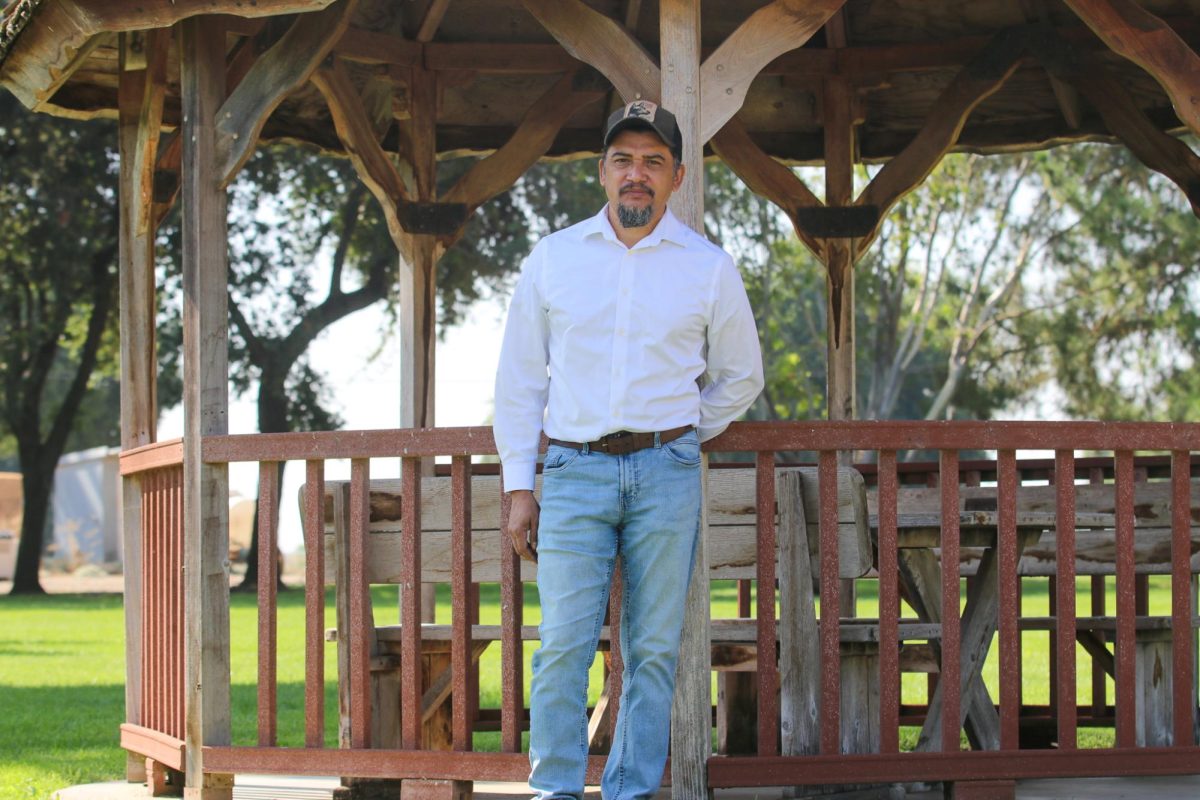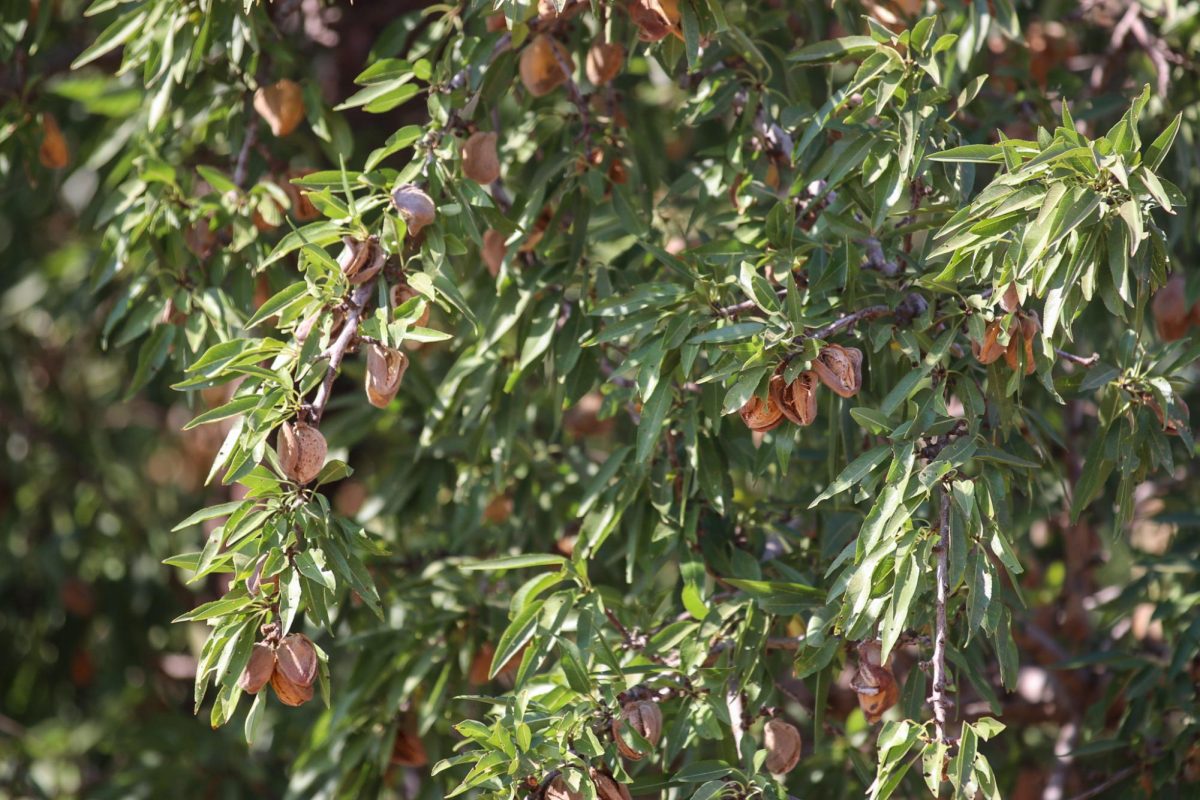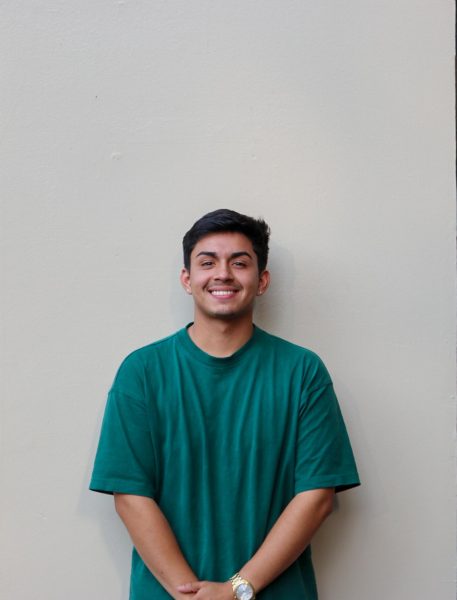In April, Chico State College of Agriculture announced Ricardo Orellana as the new University Farm director after retiring professor Dave Daley served in the role for 13 years. With a rich international background, Orellana aims to bring more opportunities for students at the farm.
Originally from a rural area in El Salvador, Orellana and his family had a small farm, which consisted of cassava [also known as yuca], tomatoes, watermelons and cattle, where he and his dad would milk the cattle every morning.
“During that time, there wasn’t much technology in those places [El Salvador],” Orellana said. “I love our culture … it is the only thing that I understand and do.”
Orellana has his bachelor’s of science degree in agriculture from Zamorano University in Honduras, and his Ph.D. in plant and soil sciences from the University of Massachusetts, Amherst.
Coming from Cornell University, Orellana was a part of the Produce Safety Alliance during his tenure at Cornell University which helped meet safety standards and was able to create sustainable food sources.
Throughout his career, he has helped communities by working with small-scale farmers and technicians to grow crops that met the standards of the Food Safety Modernization Act. The FSMA Act is a food safety system that focuses on the response to foodborne illnesses along with preventing it.
According to the U.S. Food and Drug Administration, “About 48 million people in the U.S. get sick, 128,000 are hospitalized, and 3,000 die each year from foodborne diseases, according to recent data from the Centers for Disease Control and Prevention.”
When Orellana was working at Cornell, his main goal was to help farmers of all scales understand and implement food safety practices.
Orellana said that he started working in Catholic Relief Services in 2000. Catholic Relief Services is a service that provides to people in need in countries globally. He worked in countries in Latin and Central America helping small-scale farmers produce quality crops, but also helping practice healthy and safe food safety practices.
Orellana talked about one of his projects, working and partnering with farmers in Egypt to establish sun-dried tomatoes. He said that there is a need for sun-dried tomatoes in countries like Argentina and Brazil, and Egypt is one of the largest producers.
“We grabbed a group of 150 people to produce those things [sun-dried tomatoes] and helped them go through a certification process,” Orellana said. “Because you have to follow some practices to make sure that the product meets some international standards.”
Orellana believes that his international background will not only help the Chico State University Farm but also the Chico community. He wants to create an environment that allows people to come to the farm and see what the University Farm has to offer.
Orellana mentioned that one of the reasons why he came to Chico State is because it is a place that has a long reputation for research that supports the farming industry. He mentioned that he wants to create more opportunities for working on different projects to create alliances with other universities,
Orellana views the budget cuts as an opportunity to look for other ways to support the farm. He said that the staff at the University Farm looks to prioritize what is important to the curriculum for students.
Last year, the University Farm was granted $18 million from the state to renovate the learning facilities at the farm. Alongside that, Chico State’s Center for Regenerative Agriculture and Resilient Systems was also granted $6 million to help address soil erosion.
There are no set plans currently for how this money will be spent, but Orellana mentioned that they are defining some priorities for the short term, such as renovating some of the buildings on the farm itself.
One long-term goal Orellana and the College of Agriculture have is to establish a new building on the farm, but they are prioritizing small renovations before moving forward with their long-term goal.
“We have to imagine what we need to have in five years, even 10 years,” Orellana said. “The College of Agriculture will be investing some money in a new building right here and we need to get ready for that.”
The building Orellana is referring to is a new store on the University Farm. Orellana stated that this store will aim to have an industrial kitchen, it will carry varieties of different products from the different crops and units.
Orellana said that he, alongside the College of Agriculture, doesn’t have a precise plan, but they hope to bring the community closer and become a place people turn to.
Alejandro Mejia Mejia can be reached at orionmanagingeditor@gmail.com and @mejiamejialex on X.









